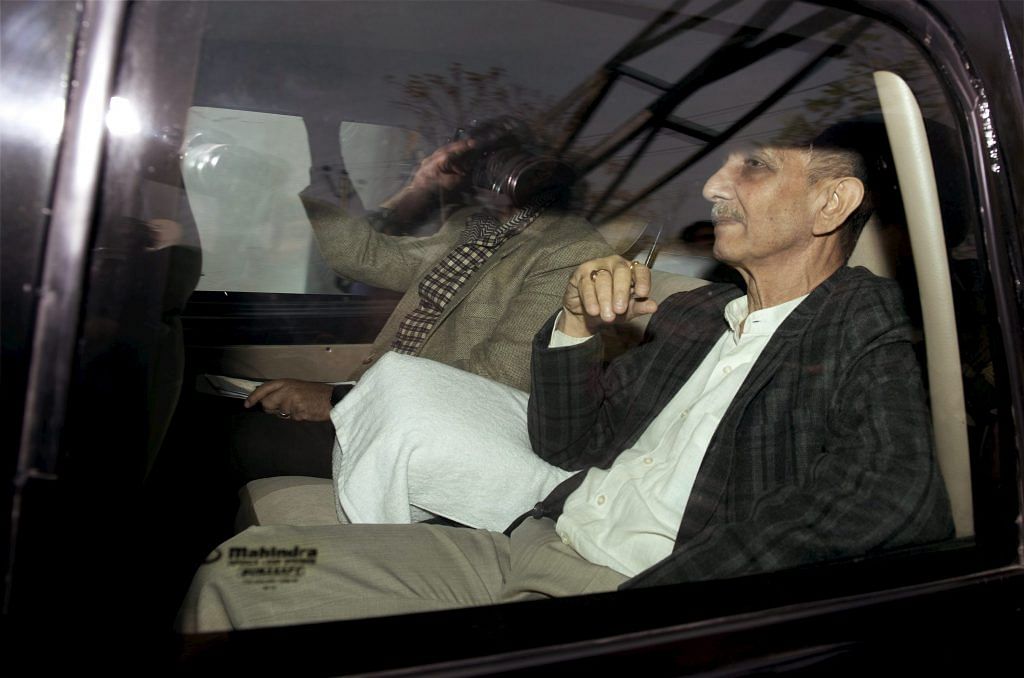Many in Kashmir viewed interlocutor Dineshwar Sharma’s first visit with scepticism, and a lot more needs to be done to achieve a thaw.
Even before the Centre’s newly-appointed interlocutor Dineshwar Sharma landed in Kashmir, his credibility had taken a hit. With senior Congress leader P. Chidambaram calling it a “diversionary tactic”, and Prime Minister Narendra Modi and BJP alleging that Chidambaram was supporting ‘azadi’, there was no surprise when many in the Valley viewed Sharma’s arrival with scepticism.
When the interlocutor touched down in Srinagar, it was not just the chilly November air that greeted him. There was also a political class, sans the PDP and the BJP of course, that was not quite sure of what to expect (or, as in the case of the Hurriyat, had not been given the go-ahead to respond to his overtures).
The Centre’s latest stand on the Kashmir issue has been to end the radicalisation of the Kashmiri youth. Ever since the killing of Hizbul Mujahideen commander Burhan Wani last year, there seems to be a renewed wave of anger and antagonism amongst the youth, which the Centre has neither been able to fully comprehend, nor assuage. It has been criticised for not taking the ‘insaniyat’ route, and in Dineshwar Sharma, it tried to answer all those who questioned the government for not initiating the dialogue process.
Who was Sharma talking to?
The interlocutor stuck to his brief. His stand was to restore peace, and be open to speaking to all, including the separatists. When asked about the Hurriyat’s refusal to meet him, Sharma responded with a “we’ll see”, clearly indicating that the door was not shut on the separatists. Asked if the separatists were stakeholders in the dialogue process, he went to the extent of saying that all Indians in Jammu and Kashmir were stakeholders.
The National Conference was reluctant to meet Sharma, saying the Centre had flayed the idea of autonomy for the state – a key plank of the party’s manifesto. However, sources within the National Conference said the party was surprised it wasn’t even sent a proper invitation or agenda for the talks. While its working president, Omar Abdullah, did meet Sharma when the latter landed up at his doorstep, it was seen more of a personal meeting than a real attempt at forging a political consensus.
“There was a lot of expectation when Mr Sharma’s appointment was announced. But the effort seems to have nose-dived since,” National Conference political secretary Tanvir Sadiq said.
“The National Conference has always been a votary of the dialogue process. But Mr Sharma should have done his homework. Before him, there have been several interlocutors and reports. He could’ve at least studied them and come with some solutions in mind. Otherwise, people are not wrong in assuming it’s nothing but a time-buying tactic,” he added.
Among the others from the political class that the interlocutor met, there was CPI(M)’s Yousuf Tarigami, People’s Democratic Front chief Hakim Yaseen, and Democratic Party Nationalist head Ghulam Hassan Mir. Later, in a joint statement, the three leaders made it clear that the onus of restoring a credible dialogue process lay with the Centre.
The other dignitaries who met Sharma over the three days of parleys were groups that the government wanted him to meet. Frankly, they did not represent a cross-section of Kashmiri society, least of all the youth – the one group that needs maximum attention.
To many, it seemed more like an administrative process rather than a dialogue process, since several groups discussed roads, hospitals, drinking water and electricity issues with Sharma. One can argue that these issues ultimately lead to discontent, but they can hardly be seen as setting the base for a meaningful political dialogue.
The BJP at the Centre will showcase these talks as the path towards finding peace. The PDP will try to convince its own constituency in the Valley that it forced the government to act.
But has this first step changed anything on the ground? Well, let’s just say it’s a long winter ahead, and a lot more needs to be done to thaw this freeze.
